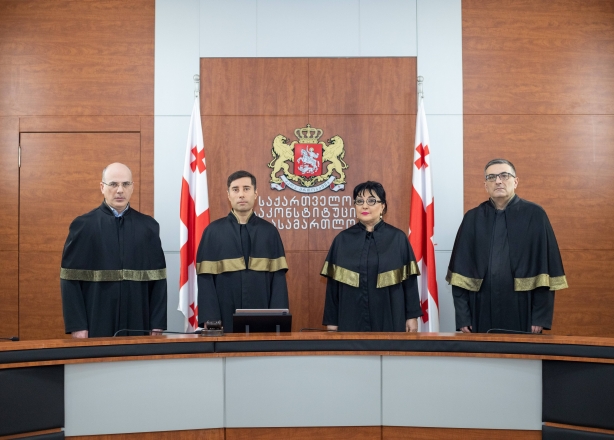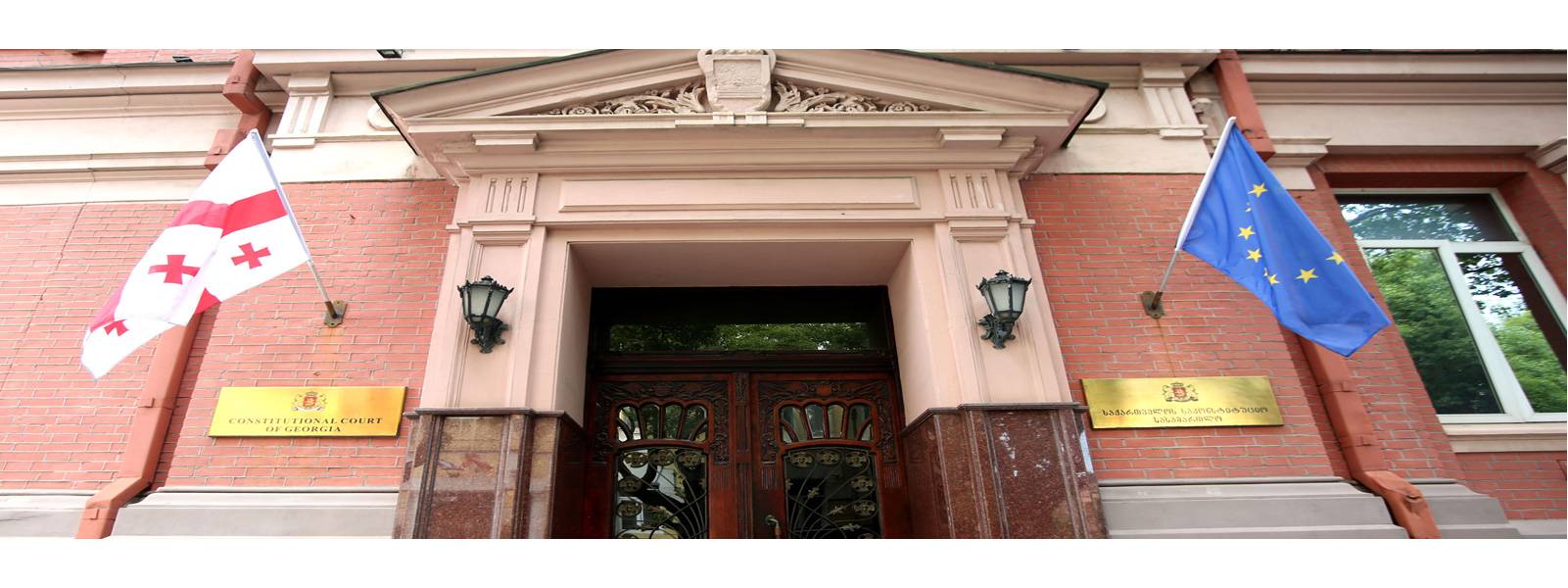News
The Constitutional Court of Georgia does not Uphold the Constitutional Claim №. 1633 (“Public Defender of Georgia v. Parliament of Georgia”).
On November 7, 2025, the First Board of the Constitutional Court of Georgia did not uphold the constitutional claim №. 1633 (“Public Defender of Georgia v. Parliament of Georgia”).
The disputed norms established the types of disciplinary sanction for an accused/convicted person placed in a penitentiary institution, namely the restriction/withholding of the right to telephone conversations, to receive and send private correspondence, and the right to short visits. The claimant requested that the normative content of the disputed provision be declared unconstitutional, insofar as it permits the imposition of the contested disciplinary sanction on an accused/convicted person for a disciplinary violation that is not related to the right to the inviolability of his or her private and family life.
In the claimant’s view, even partial restrictions on a prisoner’s opportunities to communicate with his or her family cannot be justified solely on the basis of imposing a disciplinary sanction, when there is no heightened interest in protecting state or public security. In such circumstances, the claimant argues that the need to impose a disciplinary sanction alone, even in cases of gross disciplinary misconduct, when not accompanied by an increased public interest in ensuring security, cannot outweigh the constitutional and legal importance of these rights.
According to the arguments of the representatives of the Parliament of Georgia, the legislation provides a number of legal mechanisms that prevent the adoption of a blanket decision in relation to an accused/convicted person and ensure a fair balance of competing interests. When referring to such mechanisms, the defendant party primarily highlights the procedure for disciplinary proceedings, which ensures an individualized assessment in each case, taking into account the personality, behavior, and the severity of the violation committed by the accused/convicted person. This procedure includes the possibility of conducting proceedings on the imposition of a penalty, including an oral hearing, reasonable and fair time limits, the participation of a lawyer and interpreter services, the opportunity for the accused/convicted person to submit explanations and motions, and, ultimately, the right to appeal the issued decision before a court. According to the defendant, this legal framework clearly excludes the possibility of adopting a blanket decision against an accused/convicted person and, at the same time, fully ensures the balancing of conflicting interests.
Representatives of public institutions focused on the disciplinary procedure provided for by the Penitentiary Code and the Regulations of Penitentiary Institutions, as well as the mechanism for appealing a decree on the imposition of a disciplinary penalty. In addition to the possibility of appealing such a decree, they also discussed the functions of the Monitoring Structural Subdivision of the Special Penitentiary Service, a state sub-agency operating under the Ministry of Justice of Georgia, in terms of internal oversight, and the Department for the Protection of the Rights of Persons Deprived of Liberty, which is part of that structure and reviews individual complaints submitted by prisoners regarding violations of their rights.
According to the Constitutional Court of Georgia, if the problem lies in the administration's abuse of authority in the process of imposing a disciplinary sanction within a penitentiary institution, this indicates that the issue concerns the application of the sanction, rather than the normative provision itself. In addition, the Court noted that the subject of the dispute is the constitutionality of the specific types of disciplinary sanction, and not the disciplinary violations, the disciplinary procedure, or the prerequisites for imposing a disciplinary measure. Accordingly, the Constitutional Court assessed the claim solely from the perspective of whether the legislation provides adequate guarantees ensuring that the right to private and family life of an accused/convicted person will not be unjustifiably interfered with (i.e., that an appropriate balance will be maintained), even when the disciplinary misconduct committed is not directly related to the exercise of this right.
According to the Constitutional Court, even when the disputed sanctions are applied to an accused/ convicted person, they do not completely prevent communication with the outside world or with family members, since the legislation does not permit the simultaneous restriction of all the rights provided for under the disputed regulations. Therefore, as a result of analyzing the legislation, it was determined that the scope and intensity of the impact of the sanctions are not of such a degree as to violate the right to the inviolability of private and family life of a person placed in a penitentiary institution. In turn, the Court also pointed to the indisputable circumstance provided by law that a disciplinary penalty must not be degrading to the accused/ convicted person, nor violate his or her honor and dignity. At the same time, it emphasized the statute of time limitations established by the Penitentiary Code for imposing disciplinary liability, as well as the general authority to early release from a disciplinary sanction and incentives of the accused/convicted person.
According to the Constitutional Court, the accused/convicted person is not completely deprived of communication with the outside world, and the above-mentioned legislative mechanisms fully ensure the possibility of making a fair decision through the balancing of interests.
Subject of the dispute: Constitutionality of subparagraphs “h”, “i” and “k” of Part 1 of Article 72 of the Penitentiary Code with respect to Paragraph 1 of Article 15 of the Constitution of Georgia.


